|
Blog
-
MWC 2016 Brand Finance the Brand Finance Tech 100: The State Of Their Brands
As the world’s tech companies gathered in Barcelona Monday 22 February until the Thursday of Mobile World Congress 2016. Brand Finance released its annual review of the state of their brands, the Brand Finance Tech 100.
Key Finds:
- WeChat grows brand value by 83%
- Apple extends lead with record breaking R2,3 trillion brand value
- Galaxy S6 restores Samsung’s brand rating to AAA
- Uber enters table with R175bn brand value
WeChat a fast growing brand:
WeChat increased its brand value by 83% this year, making it one of the fastest growing brands in the technology table. The messaging app, also offers a payment platform, it’s rapid growth, registered users totalling an astonishing 1.1bn, of which 100m base outside of China.
Tencent, the holding company that owns and operates WeChat, recently announced that WeChat will start charging its users for payment transactions in March 2016, a move that could boost revenues even higher.
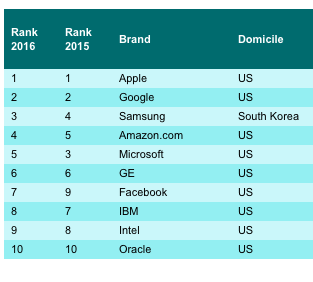
The World’s Most Valuable Tech Brands (Top 10): Apple Not Rotten Yet
With a value of R2.3 trillion Apple remains the world’s most valuable brand. Despite annual predictions of a fall from grace, brand value is up 14%. Revenue for the last three months of 2015 was a record-breaking R96,2 billion. There has been much disappointment about slowing growth, this must be seen in the context of an exceptional period at the end of 2014 following the release of the iPhone 6. To not just maintain but increase sales in a saturated market is encouraging and assertions that Apple has gone rotten are premature.
Samsung’s brand rating to AAA
Samsung’s brand rating has been restored to AAA this year, which indicates the strength and future potential of the brand, this is thanks in part to the positive reception of the Galaxy S6. The significantly improved design also put the Galaxy S6 on the radar of iPhone users. The unveiled Galaxy S7 looks to follow the footsteps of its predecessor but adds features such as water resistance, extended battery life and expandable storage option. Revenues improved this year, most coming from Samsung’s semiconductor business which produces chips for most smartphone manufacturers, including, ironically, Apple.
Uber Starts Well a Tough Road Ahead
Uber established itself in the top end of this year’s technology table with an impressive brand value of R175bn. This makes the app’s brand more valuable than giants such as Panasonic, Dell and Sony.However challenging times could lie ahead.
Uber continues to face regulatory challenges in the west, as the company is bombarded with protests and lawsuits from taxi unions and transport authorities while in the east, the company struggles to turn a profit due to fierce competitors, such as Didi Kuaidi, the favoured low-cost ride company in China.
-
South Africa celebrates Wikipedia 15 this week
[Johannesburg, South Africa] This week Wikipedia, the world’s largest encyclopedia turns 15 years old. South African editors and contributors will meet in Johannesburg and Cape Town to join a global series of events led by the Wikimedia Foundation.
In South Africa, Wikimedia ZA and NETucation, a leading Internet safety training company, have combined their resources to organise an edit-a-thon event in Johannesburg on Saturday, January 16th and in picnic in Cape Town on Friday, January 15th.

“Wikipedia is not only valuable because of the free information it provides, it also allows South Africans to tell our stories to the world,” says Ramon Thomas, founder of NETucation, who first used the Internet in 1993 in Port Elizabeth. “The most valuable contributions I’ve made is to expand articles about people and places I know very well across South Africa.” Since 2006 he started to edit in English and Afrikaans Wikipedia.
Before 2001, an encyclopedia would cost thousands of Rands, trees, water and ink, and it was really really hard to carry around. Today Wikipedia provides millions of referenced articles, photos, illustrations, sources, and word definitions right at your fingertips. The volunteers who have been creating this amazing work for 15 years don’t charge anything for it. They want to share all the world’s knowledge with every person alive today.
“I discovered that if I don’t edit, no one will edit,” says Bobby Shabangu, a member of the Wikimedia ZA board of directors. “I wanted to activate people into talking about Wikipedia and the work they do and everything…that’s actually how I got involved with the whole thing.” Since late 2012, he began to edit both the Swati and English Wikipedia.
Event Details:
Cape Town
Johannesburg
Venue: De Waal Park, Oranjezicht
Date: Friday, January 15
Time: 16:00 to 19:00Venue: Nino’s Rosebank, The Zone>
Date: Saturday, January 16
Time: 09h00 to 12h00RSVP: http://bit.ly/WikipediaZA15
— ENDS —
Media Contacts:
Wikimedia ZA
NETucation
Bobby Shabangu
Mobile: +27720679 593
Email bobbyshabangu@gmail.com
Website: www.wikimedia.org.za
Ramon J. Thomas
Mobile: +27814399555
Email: r@netucation.co.za
Website: www.netucation.co.za
About Wikimedia ZA
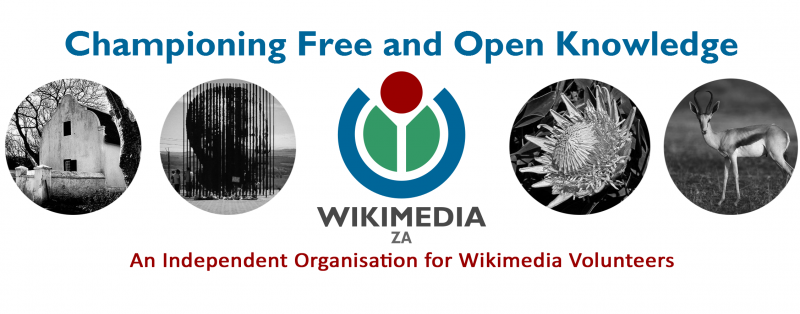
The WikiProject South Africa is a collaborative effort to improve coverage on South Africa and the organisation of information and articles on this topic. This WikiProject is part of the WikiProject Africa and aims primarily to help coordinate and improve pages on South Africa, History of South Africa and South Africans. Wikimedia ZA, is national not-for-profit, created to promote the interests of Wikimedia projects within South Africa.
About NETucation
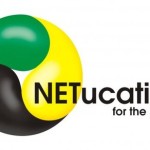
NETucation provides training on how to be smart and safe, online. We empower teenagers, teachers, parents and professionals for the Internet age. Since 2004 we have delivered over 500 seminars and workshops to Michaelhouse, St Alban’s College, St Mary’s DSG, the Crawford and Curro Schools, etc. We also participate in government and public forums with the Film & Publications Board and Childline South Africa; while publishing ebook like the “Parent’s Guide to MXit” and “Privacy is Possible.”
-
Multiplier Mindset 14 – What You Can Learn From Failure
Dan Sullivan notes that successful entrepreneurs have a certain mindset around their experiences in life that greatly contributes to their success and happiness. They see every experience in life either as a win or as learning.
source: Strategic Coach
-
Shining a light on education
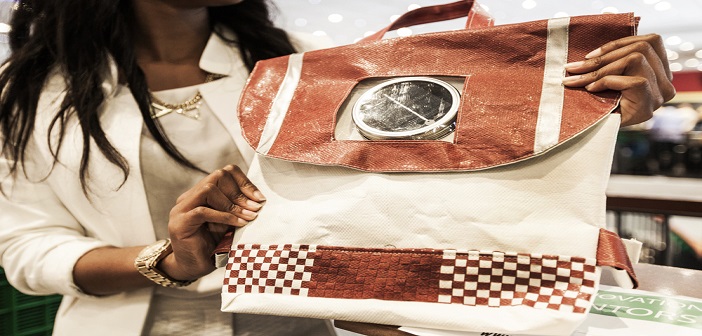 The Italian physician and educator, Maria Montessori, famously once said: “Our care of the child should be governed, not by the desire to make him learn things, but by the endeavour always to keep burning within him that light which is called intelligence”; and now two girls are helping to ensure that this light continues to burn for school children across South Africa with a rather innovative concept…Leaving school and walking home is so often fraught with danger every day for thousands of school children across Africa. Travelling along busy roads with little to no light only to get home and attempt to complete their homework under similar lighting conditions has long proved a challenging issue with long term societal impacts.Now two school friends turned business partners are looking to change all this, helping to provide for underprivileged communities through an innovative and environmentally friendly concept – the repurpose schoolbag.
The Italian physician and educator, Maria Montessori, famously once said: “Our care of the child should be governed, not by the desire to make him learn things, but by the endeavour always to keep burning within him that light which is called intelligence”; and now two girls are helping to ensure that this light continues to burn for school children across South Africa with a rather innovative concept…Leaving school and walking home is so often fraught with danger every day for thousands of school children across Africa. Travelling along busy roads with little to no light only to get home and attempt to complete their homework under similar lighting conditions has long proved a challenging issue with long term societal impacts.Now two school friends turned business partners are looking to change all this, helping to provide for underprivileged communities through an innovative and environmentally friendly concept – the repurpose schoolbag.
The first green initiative from founding company Rethaka, set up by Thato Kgatlhanye and Rea Ngwane, the pair, now 22, are taking full advantage of the overflowing plastic waste in their region and neighbouring communities to upcycle it into 100% recycled plastic schoolbags for local disadvantaged school children.
Not only are the bags made from recycled materials, helping with the environmental issue in the country, but it doubles as a light and features reflective materials, providing a safety aspect so the children are more visible walking home in rush hour traffic.
With a solar panel positioned in the flap of the bag, charging as the children walk to school, it subsequently allows sufficient light walking home and enough to finish their homework in the evenings. Many households have to rely on candle light after dusk, but these are often rationed, so the school bag will also impact positively on family life too.
“One of the first obstacles these kids face if not being able to finish their homework. If a child doesn’t have access to light then as soon as the sun goes down there is not time to do anything but sleep,” Co-founder, Thato Kgatlhanye, explains.
The two girls carried out a 6-month trial period at the beginning of last year, distributing the recycled bags to schools across the Rustenburg region, and producing 1,000 bags from the period August to December.
Each bag currently costs R250 (US$20) to manufacture, which helps to cover both the production and employee costs. Producing up to 20 bags a day in its workshop, the company presently employs eight full time workers, with the girls hoping to increase this to 12 by the end of the year to help meet its target to produce 10,000 bags this year alone.
Helping to distribute these upcycled school bags to children, the company has targeted and teamed up with local individuals to achieve funding and corporate social investment in a bid to sponsor the production of each bag, ensuring the process remains sustainable with plenty of room to grow and expand into surrounding African communities.
Of course, it is not always easy to start and run a business, especially at the age the girls are and with a subject so integral and prominent to the region. Challenges have arisen along the way, particularly with the lack of infrastructure for plastic recycling but a quick solution was to simply create this themselves which has resulted in a positive and sustainable outcome.
The children have been encouraged to collect and bring in the plastics themselves and feel involved in the whole process from the very beginning to the end.
“The plastic comes to our workshop where we process them into a textile, sew it up with industrial sewing machines and then we distribute,” Kgatlhanye explains.
The concept of recycling and upcycling, although a foreign concept to so many children in the region, has helped to generate interest and knowledge. “Kids are picking up litter around the community,” explains Kgatlhanye.
With distribution underway, the recycled school bag is really a testament to both Thato and Rea and their evident entrepreneurial skills and flair for innovation, even from such a young age. Now clear role models for the children they are helping to provide support to, Thato Kgatlhanye has been recognised for her business ventures; selected for an internship in New York to work alongside the American best-selling author, Seth Godin and in 2014, she was selected as one of the 18 South African social entrepreneurs to attend the 10-day Red Bull Amaphiko Academy.
Perhaps most impressively though, Kgatlhanye was selected as the 2014 first runner-up of the Anzisha Prize, winning $15,000 in prize money.
In an online Q&A session held earlier this year on the Anzisha Prize’s Facebook page, Kgatlhanye explained: “My advice is simple: bootstrap and find competitors to enter your business idea into. Firstly it is a great way to get free business support and advice. Secondly, it’s a great networking opportunity to meet high-profile business people – who usually judge these competitions – and potentially get mentorship from them. Finally, if you end up a winner, you will not only get a cash prize but also get some PR out of it.
“Get a business coach, be honest, leave the ego at the door and hustle,” she concluded.
Looking to the future for this young company and both girls hope to develop further products using 100% recycled materials, including different bag designs and raincoats. With major clients including PwC and Standard Bank already on-board, venturing into other communities is assuredly something we will be seeing in the not so distant future for Rethaka and its ingenious school bag concept.
-
Myths About Reading
Myths about Reading by Janet Dorman
 Myth # 1 Children who learn to read before they go to school will be bored when they go to school
Myth # 1 Children who learn to read before they go to school will be bored when they go to schoolThis is not a myth.
Children who learn to read before they go to school will be bored when they go to school. But so will the kids who did not learn to read before they went to school. All kids are bored when they get to school.
This is because school is boring.
They enter school thrilled to be there and full of anticipation but unfortunately what awaits them is not what they expect. Once the thrill of the new backpack and the school bus has worn off most first graders settle down to the reality that school is boring. They are rarely given a choice whether they want to go to school or not so they learn to accept the fact that they spend many hours each day waiting for recess, waiting for lunch and thrilled when they can at last return home.
The question is not who will be bored but rather who will handle the boredom the best. Very sharp first grade teachers often give the child who can read the opportunity to go to the library and read while the teachers teach all the rest of the kids to read. This is a wonderful thing for the child who can read. Even brighter teachers enlist the help of the six-year-old who can read to help teach the other kids especially the children who will be struggling to learn even a few words. This is a superb chance for our little reader to really make a difference and to strengthen his own ability along the way.
The children who cannot read when they get to school will suffer through – some of them learning to read a few hundred words by the end of the year. 35 % will not master those few hundred words and will range from frustrated to crushed and demoralized by the experience.
It is good, not bad, to be able to read when you get to school. It helps the child to be “school-proof”.
Myth #2 Teaching a child to read before school will make him a nasty little genius
 Well, at least this myth acknowledges that children who learn to read when they are young will gain information and, as a result, have increased intellectual growth as compared with a child who is not given this opportunity. This is true.
Well, at least this myth acknowledges that children who learn to read when they are young will gain information and, as a result, have increased intellectual growth as compared with a child who is not given this opportunity. This is true.When a child is given the ability to read he can explore the world through books. He is no longer completely dependent on adults and can make his explorations all by himself.
Yes, he gains a lot of knowledge this way as any good reader does. He also gains confidence in his own ability to learn.
Yes, he will take that knowledge into school with him. However, this myth assumes (incorrectly) that knowledge leads to nastiness.
The good news is that it does not.
Children are not naturally nasty. Children are naturally kind and generous unless a nasty adult spends a lot of time being nasty to them and teaching them to be nasty to others.
Those children who have spent a lot of time nose-to-nose with mother or father at home learning to read also gain a great deal from this experience socially.
They are confident and happy with themselves. It is our experience over half a century that these children are much more likely to be the peacemakers in school. They are the ones befriending the kid that others are picking on. The bullies are those children who do not feel confident and happy. It is a simple as that.
 Myth # 3 Very young children cannot learn to read because they have a short attention span
Myth # 3 Very young children cannot learn to read because they have a short attention spanLook carefully at an 18-month-old and see what he does. Often he drives everyone crazy.
Why?
Because the tiny child will not stop being curious. Little children cannot be dissuaded or disciplined out of their desire to learn – no matter how hard we try. The child wants to learn about the lamp, and the coffee cup, and the electric socket, and the newspaper and everything else in the room which means that the lamp gets knocked over, the coffee gets spilled and the newspaper gets shredded. We conclude that the tiny child is hyperactive and unable to pay attention.
But the truth is that the child pays attention to everything.
There are only five pathways into the brain. We can see, hear, feel, taste and smell. The very young child will use all of these pathways in learning about the world. The child will not ask to leave a room until he has checked out everything in that room that is new. He will look at things that are out of reach, he may listen to an object if he can, he will certainly touch any item that he is permitted to touch and he may even taste or smell things that seem to merit such inspection.
We adults watch this impressive display of curiosity and experimentation. What do we conclude? We often conclude that the child has a short attention span when in fact the child is paying attention (real attention) to everything in the room. Tiny children have superb attention, interest and enthusiasm to learn. When we offer reading words to the tiny child he will gobble them up at a rate that is truly astonishing.
source: The Institute for the Achievement of Human Potential
-
Education costs rises double that of inflation
by Deneesha Pillay
Statistics SA figures on the cost of education indicate consumers who have children will come under financial pressure.
The cost of education rose by 9.3% in March compared to March last year. This is 5.3% higher than the headline inflation figure of 4% year-on-year for the same month, according to the statistics SA data. The data was based on fees charged by schools and tertiary institutions.
Education inflation consistently outstripped inflation, said statistics SA. It said: “South African households will have to make more room in their budgets to pay for rising tuition fees.”
Old Mutual estimated that if a child started Grade R this year, a complete education — including primary school, high school and three years of university — would cost just less than R1m for public school tuition or R2.2m for private school tuition (in nominal terms).
Statistics SA acknowledged — as has been said by unions calling for free tertiary education — that rising costs were a barrier to education.
The agency’s latest General Household Survey shows that 33% of individuals up to the age of 24 cited a lack of money as the reason for not attending an educational institution.
Broken down by province, the figure was 45% in KwaZulu-Natal and as low as 21% in the Western Cape. Although the Northern Cape exhibited a 59% increase in education costs between 2010 and this year, only 22% of those aged 5–24 indicated a lack of money as a barrier to education.
The weak rand was identified as a factor that increased the cost of imported books and materials.
Statistics SA’s report on the financial status of higher education institutions showed expenses increased 12% in 2013 compared with 2012, increasing from R41.4bn to R46.2bn.
source: The Herald / Business Day
-
How To Get The Best Service On The Phone
And, While You’re at It, Make Someone’s Day
 When talking to customer service, call centers, tech support, secretaries or sales reps on the phone, you’re at their mercy on what they’ll do for you–and how fast. Here are tiny tips for getting the best, speediest and most pleasant service he/she has to give.
When talking to customer service, call centers, tech support, secretaries or sales reps on the phone, you’re at their mercy on what they’ll do for you–and how fast. Here are tiny tips for getting the best, speediest and most pleasant service he/she has to give.First thing, give YOUR name. That personalizes it and, who knows, she may think you’re a VIP whose name she’s supposed to know.
When he barks, “Please hold,” don’t just grumble “okay.” Say “Of course, take your time.” (He’ll be shocked and want to come back much sooner!)
If you’re a little slow giving information she needs, say, “You must have tremendous patience to do this job.” (She appreciates the rare compliment and now wants to help you all the more.)
Ask his name so he feels responsible. Be sure to preface your request with “You’re great. May I ask your name?” to assuage paranoia about being reported. And, now that you know his name, he’s more anxious to solve your problem. His job—and a good employee’s pride–often depends on it.
End your conversation with, “Great service!” Or “Thanks for your excellent help.” Now you’ve made his/her day in a tough often thankless job. -
Improvements to Amazon Kindle book samples
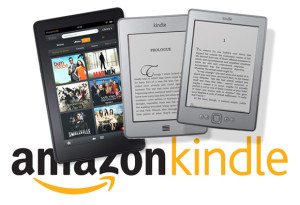 We recently received this message from Amazon.com:
We recently received this message from Amazon.com:We are pleased to let you know about some improvements that we made to Kindle book samples:
– Samples that you download from the Kindle book store will now be saved in the cloud so that you can access and read them on any supported Amazon device or Kindle reading app.
– You can delete your samples from the cloud on any supported devices or Kindle reading apps, or from Manage Your Content and Devices. (http://www.amazon.com/mycd ).Amazon devices and free Kindle reading apps that support these sample improvements are: Fire HDX, Fire HD, Kindle Fire HDX, Kindle Fire HD (2nd Generation), Kindle Voyage, Kindle Paperwhite (2nd Generation), Kindle (7th Generation), Fire phone, Kindle for iPhone, iPad, and iPod touch version 4.5 or greater, and Kindle for Android version 4.7 or greater.
To learn more about these improvements, visit our help page:
https://www.amazon.com/help/kindle/samplesThank you for choosing Kindle.
Sincerely,
Amazon Kindle Support -
Toastmasters Reveals 2014 International Convention Speakers
California, July 16, 2014 – Toastmasters announced the featured speakers for its upcoming 2014 International Convention. The lineup of presenters is highlighted by former Head of Development at BBC Television, Robin Sieger and Malaysian media CEO Rohana Rozhan.
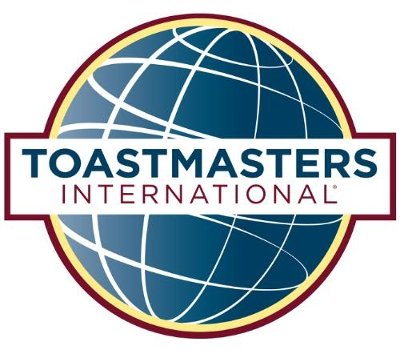 “We have an impressive and diverse group of speakers who represent the excellence that Toastmasters speakers are known for,” says George Yen, Toastmasters 2013-14 International President. “In addition to an exceptional schedule of events, convention attendees will hear presentations that reinforce Toastmasters’ commitment to communication and leadership skills development.”
“We have an impressive and diverse group of speakers who represent the excellence that Toastmasters speakers are known for,” says George Yen, Toastmasters 2013-14 International President. “In addition to an exceptional schedule of events, convention attendees will hear presentations that reinforce Toastmasters’ commitment to communication and leadership skills development.”For the first time in its 90-year history, Toastmasters is holding its International Convention outside of North America at the Kuala Lumpur Convention Centre in Malaysia, Aug. 20-23.
Robin Sieger will deliver the keynote presentation during the Opening Ceremonies on Wednesday, Aug. 20. A former television executive and comedy writer, Sieger is a popular author and motivational speaker from Scotland who speaks about innovation to Fortune 100 companies around the world.
Astro Malaysia Holdings’ CEO Rohana Rozhan will be honored as the recipient of the nonprofit organization’s 2014 Golden Gavel award. The prestigious award is presented annually to an individual distinguished in the fields of communication and leadership. Rohana joins an illustrious list of Golden Gavel honorees, including Walter Cronkite, Stephen Covey, Deepak Chopra, Anthony Robbins and Zig Ziglar. Another Malaysian celebrity, Datuk John Lau, who served as Toastmasters International President in 2012-13 will give an introductory speech at the event. He is the owner and chief executive officer of the Acme Group of Companies in Sarawak, Malaysia
Other expert presenters include:
- Jana Barnhill, Accredited Speaker and Toastmasters 2008-2009 International President from Lubbock, Texas. She is a five-time winner of the District 44 International Speech Contest, and has placed second and third in the Toastmasters World Championship of Public Speaking.
- Mark Brown, 1995 Toastmasters World Champion of Public Speaking. Originally from Kingston, Jamaica, Mark now lives in the U.S., in Lizelle, Georgia. He is a member of the National Speakers Association and delivers more than 200 presentations per year.
- Douglas Kruger, Author, motivational speaker and presentation skills coach based in Johannesburg, South Africa. He delivers motivational presentations and training seminars for large organizations, including Old Mutual, Caltex and Vodacom.
- Lance Miller, 2005 World Champion of Public Speaking. A resident of Glendale, California, he is a former executive for Nestle and Anheuser-Busch. Miller engages his audience with a unique mix of talent and life experience that bring his messages to life.
- Florian Mueck, A speaker, coach and author based in Barcelona, Spain, who speaks three languages (English, German and Spanish). In 2010, he gave a talk for TEDxBarcelona titled “Europe: How to Unleash a Common Spirit.”
- Rory Vaden, Entrepreneur, consultant and author from Nashville, Tennessee who speaks to audiences about how to say no to things that don’t matter, and yes to things that do. At age 23, he placed second in the 2007 World Championship of Public Speaking.
To learn more about the 2014 International Convention, Aug. 20-23, and obtain a complete schedule of events, including the Opening Ceremonies, Education Sessions and the Toastmasters World Championship of Public Speaking. The public is welcome to attend.
About Toastmasters International
Toastmasters International is a nonprofit educational organization that teaches public speaking and leadership skills through a worldwide network of meeting locations. Headquartered in Rancho Santa Margarita, California, the organization’s membership exceeds 292,000 in more than 14,350 clubs in 122 countries. Since 1924, Toastmasters International has helped people of all backgrounds become more confident in front of an audience. For information about local Toastmasters clubs, visit www.toastmasters.org. Follow @Toastmasters on Twitter.
source: Yahoo News




